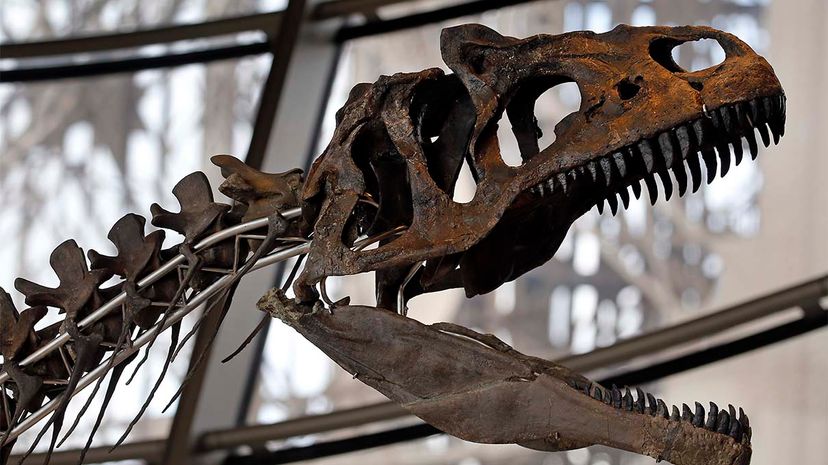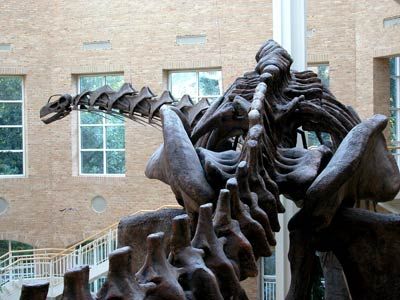Before you can have a sale, there has to be a seller. We recently discussed the legality of fossil collecting with P. David Polly, a professor of geology at Indiana University. On top of his duties to the school, Polly is the current president of the international Society for Vertebrate Paleontology (SVP), which boasts over 2,300 members.
"Laws covering fossils vary considerably from country to country," says Polly in an email. In the United States, fossils that are discovered on federal land are considered public property. "They are held in trust on our behalf by the U.S. federal government," Polly explains. "The Paleontological Resources Preservation Act (PRPA), which was passed by Congress in 2009, stipulates that scientifically important fossils ... can only be collected with a scientific permit and must be placed in an approved repository — i.e., a research collection of a museum or university — where they will be available to scientists and other interested people." (Native American land is exempted; according to the Federal Register, fossil-collecting on this soil falls "under the jurisdiction of tribal authorities.")
The act is a bit more lenient when it comes common plant and invertebrate fossils like trilobites. Private citizens are allowed to collect these "for personal use in reasonable quantities" on federal land without a permit. However, any fossils taken from federally owned rock "may not be bartered or sold" later. Note that special rules may apply to certain remains and locations. For example, it's a misdemeanor to collect petrified wood in Arizona's Petrified Forest National Park. If you've got any questions about the rules in your area, please get in touch with the closest BLM office. "Some US states, such as Wyoming and California, have similar laws protecting fossils on state lands," Polly notes.
Privately held land is a horse of a very different color. In countries like Mongolia, dinosaur fossils are considered to be part of the nation's shared cultural heritage — regardless of where they were found. As such, they can't be sold in private markets, and personal ownership of these remains is against the law. But in America, fossils discovered on private property belong to the landowner.
So if you, as a resident of the United States, find a dino skeleton on real estate that you own, you can legally keep, sell or export it. The question is, should you?


